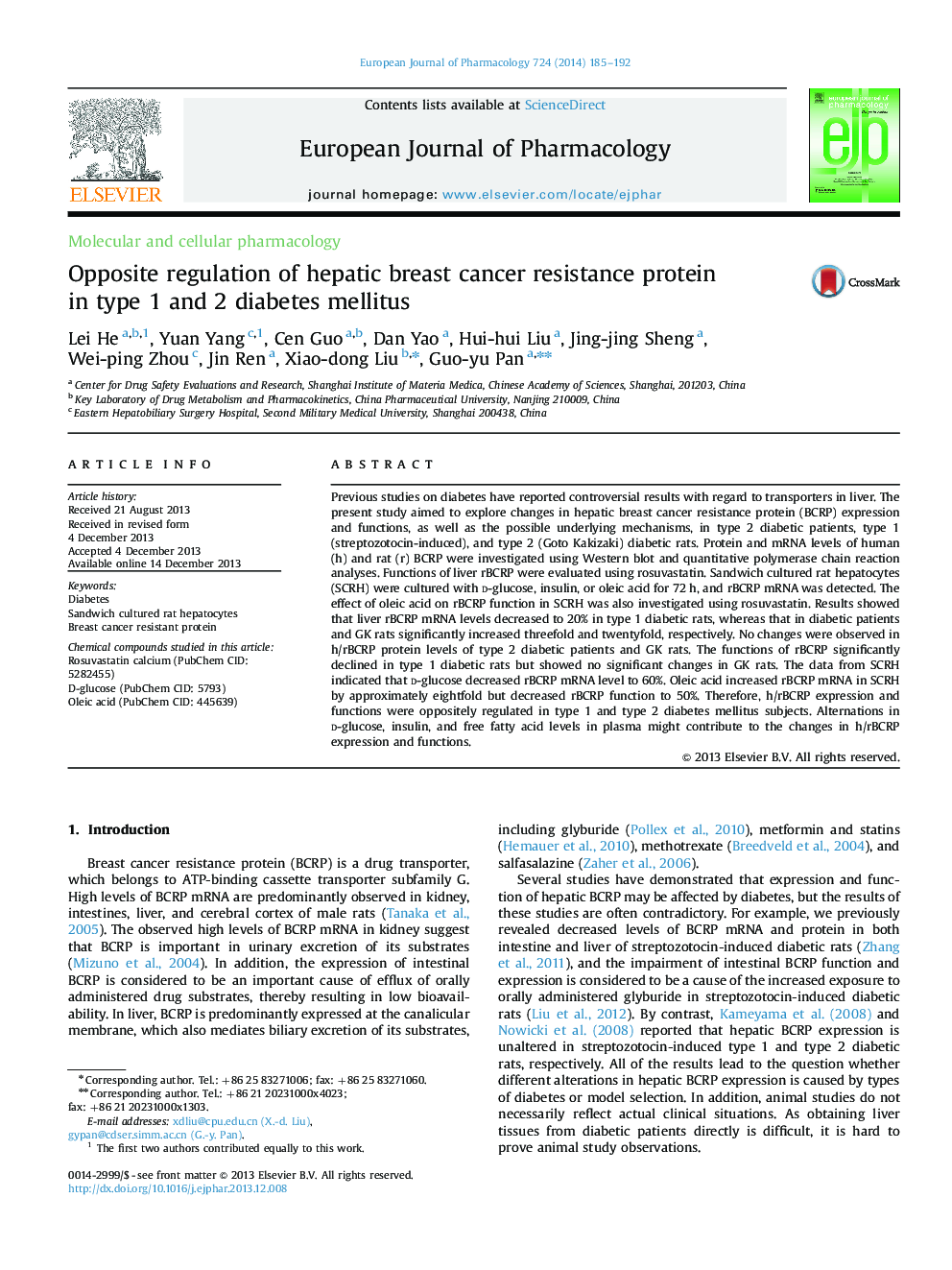| Article ID | Journal | Published Year | Pages | File Type |
|---|---|---|---|---|
| 2531810 | European Journal of Pharmacology | 2014 | 8 Pages |
Previous studies on diabetes have reported controversial results with regard to transporters in liver. The present study aimed to explore changes in hepatic breast cancer resistance protein (BCRP) expression and functions, as well as the possible underlying mechanisms, in type 2 diabetic patients, type 1 (streptozotocin-induced), and type 2 (Goto Kakizaki) diabetic rats. Protein and mRNA levels of human (h) and rat (r) BCRP were investigated using Western blot and quantitative polymerase chain reaction analyses. Functions of liver rBCRP were evaluated using rosuvastatin. Sandwich cultured rat hepatocytes (SCRH) were cultured with d-glucose, insulin, or oleic acid for 72 h, and rBCRP mRNA was detected. The effect of oleic acid on rBCRP function in SCRH was also investigated using rosuvastatin. Results showed that liver rBCRP mRNA levels decreased to 20% in type 1 diabetic rats, whereas that in diabetic patients and GK rats significantly increased threefold and twentyfold, respectively. No changes were observed in h/rBCRP protein levels of type 2 diabetic patients and GK rats. The functions of rBCRP significantly declined in type 1 diabetic rats but showed no significant changes in GK rats. The data from SCRH indicated that d-glucose decreased rBCRP mRNA level to 60%. Oleic acid increased rBCRP mRNA in SCRH by approximately eightfold but decreased rBCRP function to 50%. Therefore, h/rBCRP expression and functions were oppositely regulated in type 1 and type 2 diabetes mellitus subjects. Alternations in d-glucose, insulin, and free fatty acid levels in plasma might contribute to the changes in h/rBCRP expression and functions.
